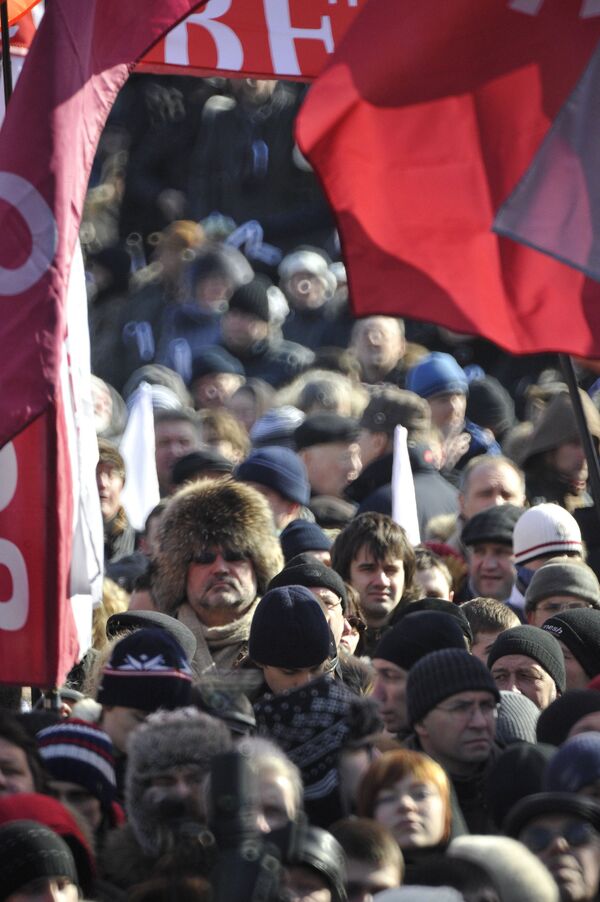Almost 70 percent of protesters at the latest opposition rally in Moscow attested themselves as happy people despite their political discontent, according to a new study released Tuesday.
Family and freedom were the two most important values for protesters, the latter rising in popularity since December to match family at 47 percent on the latest rally on Sunday, research center Sreda said at a press conference in Moscow.
The Moscow-based sociological think-tank, which focuses on studying values of the Russian populace, polled about 200 random respondents in face-to-face interviews at each of the four biggest opposition rallies that took place in the capital between December 24 and March 10. The study did not specify the margin of error.
The grassroots protests, the biggest of their kind in Russia since 1993, targeted the parliamentary and presidential elections, which supported Prime Minister Vladimir Putin and his United Russia party amid fraud allegations.
Two-thirds of protesters were men, and 66 percent had a higher education, Sreda’s coordinator Alina Bagrina said at the press conference.
“It’s not quite middle class. Only 30 percent can afford a car, the rest are intelligentsia,” said her colleague Roman Lunkin, who also works at the Institute of Europe of the Russian Academy of Sciences.
“The allegations of vote rigging are not new, but this is the first time the people actually feel like they have a program to achieve something, to change the country for the better,” Lunkin told RIA Novosti on the sidelines of the press conference.
Most protesters came to the streets because they were displeased with the authorities – an answer that gathered a combined 54 percent during its peak of popularity during the February 4 rally when many respondents gave emotional or even obscene replies grouped by Sreda as “[We’ve] had enough!” The answer slid down in popularity to 37 percent on March 10, when another 23 percent said rallying was their civic duty.
The main goals of the protesters are to repeat presidential and parliamentary elections and the resignation of Putin – ideas supported by 31 and 23 percent of the respondents, respectively, Sreda said.
As for tasks for the government, a reform of the judiciary system was the runaway leader with 47 percent, followed by an anti-corruption campaign with 38 percent and cancelation of political censorship of the media with 34 percent, Sreda representatives said.
Seventy-four percent are ready to participate in further protests, but the dominant mood is shifting from political protest to “political work,” such as public control of the authorities, a top priority for the protesters with 52 percent of the vote, followed by involvement in political parties and movements at 42 percent, Bagrina said.
The protesters also identified themselves with dogs, wolves and hedgehogs in an association game, while seeing the government as a rat and Russia’s future as a bear, a symbol of Putin’s United Russia, Sreda said.




